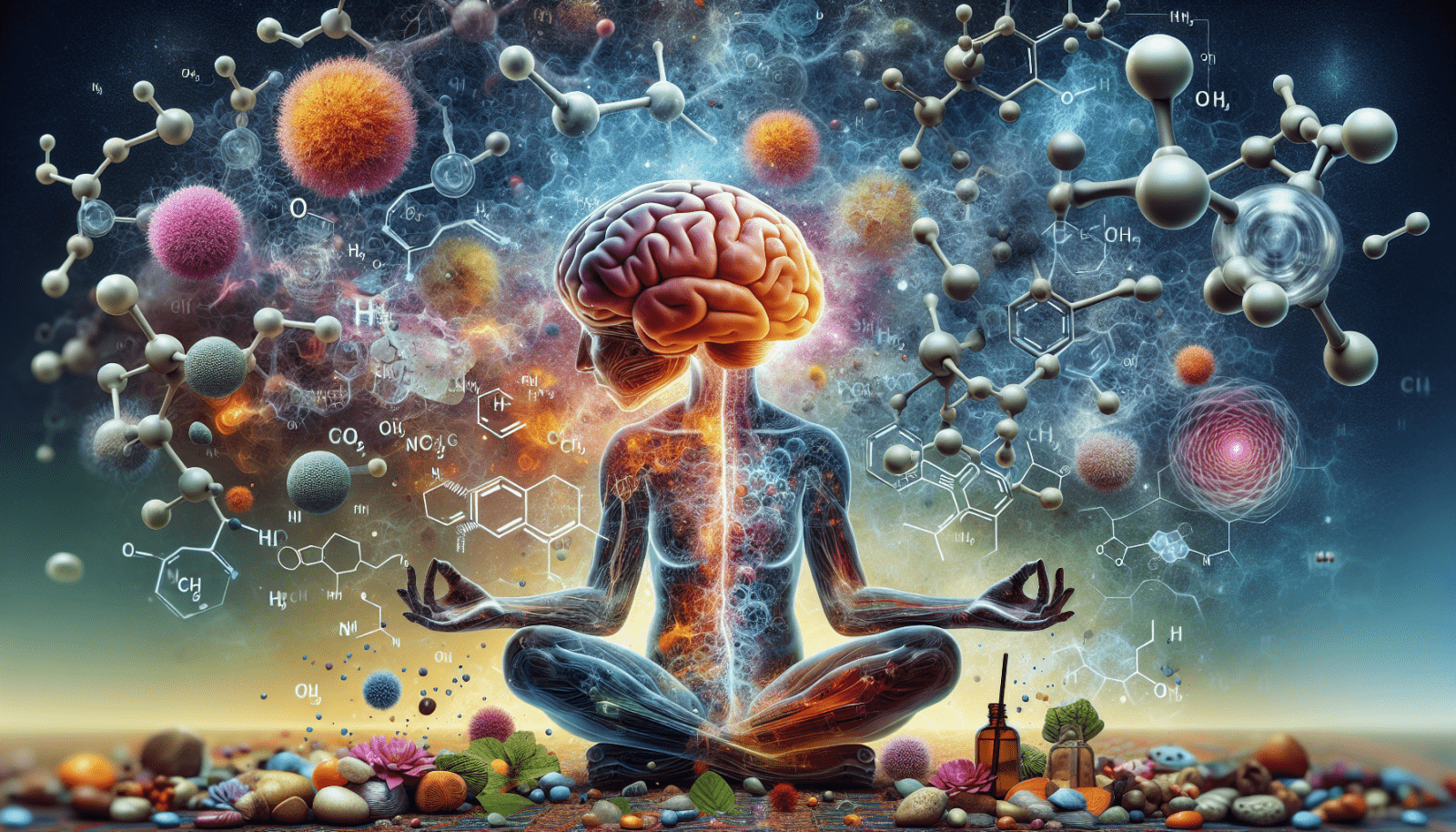This article explores the fascinating realm of stress and its management. Delving into the science behind stress, we uncover how it affects our bodies, minds, and overall well-being. Through a friendly and informative lens, we will discover practical strategies and techniques for effectively managing stress in our day-to-day lives. Join us on this enlightening journey as we navigate the complexities of stress and embark on a path towards greater resilience and balance.

Understanding Stress
Definition of stress
Stress is a natural response that your body and mind have to any demand or challenge. It is a normal part of life and can be experienced from various situations, both positive and negative. Stress occurs when there is an imbalance between the demands placed on you and your ability to cope with those demands. It can manifest in physical, emotional, and cognitive symptoms, impacting your overall well-being.
Types of stress
There are different types of stress, each with its own characteristics and effects on the body. Acute stress is the most common type and is short-term, usually caused by specific events or situations. Chronic stress, on the other hand, is long-term and often results from ongoing issues, such as work-related stress or relationship problems. There is also episodic acute stress, which is when someone frequently experiences acute stress, and it can lead to serious health consequences if not properly managed.
Causes of stress
Stress can be caused by a wide range of factors. Common stressors include work-related pressures, financial difficulties, family or relationship problems, major life events, and even positive life changes like starting a new job or getting married. Environmental factors, such as noise or overcrowding, can also contribute to stress. Each person may have different triggers, and it is essential to identify and understand your own stressors to effectively manage stress.
The Relationship Between Stress and the Body
The stress response
When your body perceives a threat or a stressful situation, it activates the “fight-or-flight” response. This is an automatic physiological reaction that prepares your body to either confront the threat or run away from it. The stress response involves the release of stress hormones, such as cortisol and adrenaline, which increase heart rate, elevate blood pressure, and boost energy levels. This response can be helpful in certain situations but becomes problematic when activated too frequently or for prolonged periods.
Effects of stress on the body
Prolonged or chronic stress can have detrimental effects on your body. It can weaken the immune system, making you more susceptible to illness and infections. Stress can also increase the risk of cardiovascular problems, digestive disorders, and have negative impacts on sleep patterns and sexual function. Additionally, chronic stress can contribute to headaches, muscle tension, and overall physical discomfort. It is crucial to be aware of these physical symptoms and regularly monitor your health to address stress-related issues promptly.
The role of hormones in stress
Hormones play a significant role in the stress response. The release of cortisol and adrenaline during stress can impact various bodily functions. Cortisol helps regulate blood sugar levels, metabolism, and the immune system’s response. However, prolonged cortisol release due to chronic stress can disrupt these functions, leading to health problems. Adrenaline, also known as epinephrine, increases heart rate and boosts alertness. Understanding the role of these hormones can help individuals manage stress and its effects more effectively.
Managing Stress
Identifying stressors
The first step in managing stress is identifying the specific factors that trigger stress in your life. Reflect on past situations or events where you felt stressed and analyze the patterns. Common stressors may include work or school deadlines, interpersonal conflicts, financial pressures, or personal expectations. Identifying your stressors allows you to develop strategies to reduce or cope with them effectively.
Coping mechanisms
Developing healthy coping mechanisms is crucial in managing stress. Each person may have different strategies that work best for them. Some effective coping mechanisms include practicing relaxation techniques, engaging in physical activity, talking to a supportive friend or family member, journaling, or engaging in creative outlets such as painting or playing music. Self-care activities like taking breaks, getting enough sleep, and managing time effectively can also help alleviate stress. Experiment with different techniques and find what works best for you.
Lifestyle changes for stress reduction
Making intentional lifestyle changes can significantly impact your stress levels and overall well-being. Focus on adopting healthy habits such as regular exercise, maintaining a balanced diet, and getting enough sleep. Engaging in hobbies or activities that bring you joy and relaxation can also help reduce stress. Additionally, managing your time effectively, setting boundaries, and learning to say “no” when necessary can prevent overwhelming stress. By prioritizing self-care and making these lifestyle changes, you’ll build resilience and better manage stress.
The Impact of Stress on Mental Health
Stress and anxiety
Stress and anxiety often go hand in hand. While stress is a response to external factors, anxiety is a persistent feeling of worry, fear, or unease. Chronic stress can contribute to the development or exacerbation of anxiety disorders. It is important to recognize the signs of anxiety, such as excessive worrying, restlessness, difficulty concentrating, and physical symptoms like rapid heartbeat or shortness of breath. Seeking professional help and practicing stress management techniques can significantly alleviate anxiety symptoms.
Stress and depression
Chronic stress can also contribute to the development or worsening of depression. The constant burden of stress can drain a person emotionally and lead to feelings of hopelessness and sadness. Common symptoms of depression include persistent sadness, loss of interest in activities, changes in appetite or sleep patterns, and difficulty concentrating. It is crucial to prioritize mental health and seek appropriate support if you experience symptoms of depression alongside stress.
The importance of stress management for mental well-being
Effective stress management is essential for maintaining good mental health. Unmanaged stress can lead to a range of mental health issues, from anxiety and depression to more severe conditions. By understanding and addressing stress, individuals can cultivate resilience, improve emotional well-being, and reduce the risk of developing mental health disorders. Emphasizing self-care and incorporating stress management techniques into daily life can have a profound positive impact on mental health.

The Role of Exercise in Stress Management
The link between physical activity and stress relief
Regular exercise has been scientifically proven to be an effective stress management tool. Physical activity releases endorphins, which are natural mood-boosting chemicals in the brain. Engaging in exercise can help reduce stress levels, improve sleep quality, and increase feelings of well-being. Furthermore, exercise provides a healthy outlet for releasing built-up tension and can act as a distraction from stressors.
Types of exercise for stress reduction
Different types of exercise can be beneficial for stress reduction. Aerobic exercises such as brisk walking, cycling, or swimming can increase oxygen flow to the brain and release endorphins. Yoga and Pilates, known for their emphasis on mindfulness and deep breathing, can also promote relaxation and reduce stress levels. Strength training exercises can provide a sense of empowerment and improve overall physical well-being, indirectly reducing stress.
Creating a regular exercise routine
To effectively manage stress through exercise, it is important to establish a regular exercise routine. Start by setting achievable goals and gradually increase the intensity and duration of your workouts. Choose activities that you enjoy to make exercise more enjoyable and sustainable. Consistency is key, so aim for a realistic exercise plan that you can maintain in the long term. Incorporating exercise into your daily routine will not only help manage stress but also improve your overall physical and mental health.
Relaxation Techniques for Stress Reduction
Deep breathing exercises
Deep breathing exercises are simple yet effective techniques that can help reduce stress and calm the mind. Practice diaphragmatic breathing by inhaling deeply through your nose, expanding your abdomen, and exhaling slowly through your mouth. This technique activates the body’s relaxation response and can be practiced anywhere, anytime.
Meditation and mindfulness
Meditation and mindfulness practices involve focusing your attention on the present moment and observing your thoughts and sensations without judgment. Regular meditation can help reduce stress, improve concentration, and promote emotional well-being. Guided meditation apps, mindfulness exercises, or attending meditation classes can support your journey to incorporate these practices into your daily life.
Progressive muscle relaxation
Progressive muscle relaxation is a technique that involves tensing and relaxing different muscle groups to promote physical and mental relaxation. Start by tensing a specific muscle group, such as your fists or shoulders, for a few seconds, then release the tension and focus on the sensation of relaxation. Move systematically through all major muscle groups, and with practice, you will learn to recognize and release tension throughout your body, reducing overall stress levels.
The Power of Social Support
Connection between social support and stress management
Social support plays a crucial role in managing stress. Having a strong support network of friends, family, or a community can provide emotional comfort and practical assistance during challenging times. Simply talking to someone who understands and empathizes with your experiences can provide a sense of relief and help put things in perspective. Social support can also offer opportunities for relaxation, laughter, and activities that distract from stressors.
Building and maintaining a support network
To build and maintain a support network, prioritize nurturing relationships with loved ones and like-minded individuals. Seek out supportive communities or join groups with shared interests. Strengthen existing relationships by making time for social activities and open communication. It is important to remember that it’s not the quantity, but the quality, of social connections that matter when it comes to effectively managing stress.
Seeking professional help
In some cases, stress can become overwhelming, and professional help may be necessary. Mental health professionals, such as therapists or counselors, can provide guidance, support, and evidence-based tools to manage stress more effectively. If stress is significantly impacting your daily life, relationships, or overall well-being, do not hesitate to seek professional assistance. They can tailor strategies specific to your needs and help you develop a personalized stress management plan.
Time Management and Stress
The impact of poor time management on stress levels
When time is mismanaged, it can contribute significantly to stress levels. Poor time management leads to a constant sense of rushing or being overwhelmed, increasing stress levels and reducing productivity. Procrastination, over-commitment, and lack of prioritization can create a cycle of stress and perpetuate feelings of being overwhelmed.
Effective time management strategies
To effectively manage time and reduce stress, it is crucial to develop effective time management strategies. Start by prioritizing tasks and setting realistic goals. Use tools like calendars or planners to schedule activities and allocate time for breaks and self-care. Break down large tasks into smaller, manageable steps to avoid feeling overwhelmed. Learn to delegate tasks and ask for help when needed. By implementing these strategies, you can regain control over your time and reduce stress levels.
Prioritization and delegation
Prioritization is a key aspect of time management. Identify the tasks or activities that are most important or urgent, and allocate resources accordingly. Learn to differentiate between tasks that require immediate attention and those that can be addressed later or delegated to others. Delegating tasks to capable individuals can lighten your workload and free up time for more significant priorities. By focusing on what truly matters, you can reduce stress and improve productivity.
Nutrition and Stress
The influence of diet on stress
Nutrition plays a significant role in managing stress levels. Poor diet choices, such as consuming excessive amounts of processed foods, sugary snacks, or caffeine, can negatively impact mood and energy levels, contributing to stress. On the other hand, a balanced diet rich in fruits, vegetables, whole grains, lean proteins, and healthy fats provides the necessary vitamins, minerals, and antioxidants to support optimal mental and physical well-being.
Foods that promote stress reduction
Certain foods provide natural stress-reducing properties. Incorporate foods rich in omega-3 fatty acids, such as salmon, walnuts, and chia seeds, which can help reduce anxiety symptoms. Whole grains, such as oats and quinoa, stabilize blood sugar levels and contribute to a sense of calm. Green leafy vegetables, like spinach and kale, are packed with nutrients that support brain health and can help combat stress. Lastly, incorporate fruits high in antioxidants, such as berries, into your diet to reduce oxidative stress and promote overall well-being.
The role of hydration in stress management
Dehydration can impact cognitive function and exacerbate stress. Ensure you are adequately hydrated by drinking plenty of water throughout the day. Limit or avoid excessive consumption of caffeine and alcohol, as they can dehydrate the body. Proper hydration supports brain function, regulates body temperature, and helps flush out toxins, all of which contribute to stress reduction. Aim to drink at least 8 glasses of water daily and adjust your intake based on activity levels and climate.
Incorporating Mindfulness into Daily Life
Practicing mindfulness in everyday activities
Mindfulness involves intentionally paying attention to the present moment without judgment. You can incorporate mindfulness into daily life by focusing on your senses during routine activities such as eating, brushing your teeth, or walking. Take notice of the taste, texture, smell, and sound associated with each task. By staying fully present and engaged, you can foster a sense of calm and reduce stress.
Mindful eating
Mindful eating is an excellent way to reduce stress and improve overall well-being. Slow down and savor each bite, paying attention to the flavors, textures, and sensations of the food. Avoid distractions like watching TV or scrolling on your phone while eating. Mindful eating encourages you to listen to your body’s hunger and fullness cues, promoting a healthier relationship with food and reducing stress-related overeating.
Mindfulness-based stress reduction programs
Mindfulness-based stress reduction (MBSR) programs are structured interventions that combine mindfulness meditation, body awareness, and yoga practices. These programs aim to help individuals develop a conscious awareness of the present moment and develop coping mechanisms for stress. MBSR programs have been shown to be effective in reducing stress, anxiety, and depression, promoting emotional well-being and resilience. Consider joining an MBSR program to deepen your mindfulness practice and enhance your stress management skills.
In conclusion, understanding stress is essential for better managing its impact on our lives. By recognizing the definition of stress, the different types and causes, and the relationship between stress and the body, we can make conscious efforts to manage stress effectively. Incorporating stress reduction techniques such as identifying stressors, implementing coping mechanisms and lifestyle changes, and seeking social support can contribute to better mental well-being. Additionally, acknowledging the role of exercise, practicing relaxation techniques, prioritizing time management, adopting a balanced diet, and incorporating mindfulness into daily life can support stress management efforts. By taking proactive steps to manage stress, we can lead healthier, more fulfilling lives.

